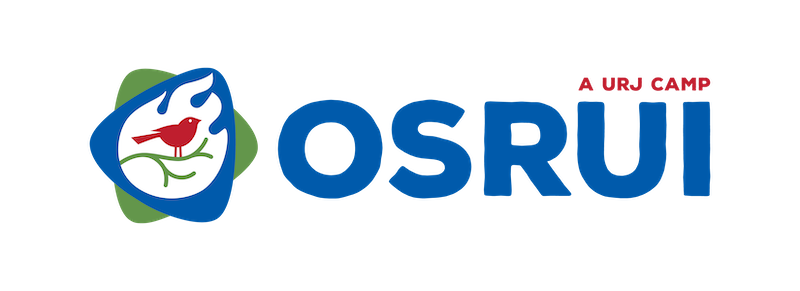by Rabbi Lisa Greene, Avodah Segel (Faculty)
“At camp, brushing your teeth is a ritual. You are brushing your teeth with everyone else in your cabin. It’s a teeth-brushing party.”
The speaker was a 17-year-old young woman, a member of OSRUI’s Avodah unit. The conversation happened earlier this week. I paused; she had a point. For years I had given teeth-brushing as an example of repeated action that was not ritual. Now I had to rethink my examples.
It was our daily Limudim (learning) session, and we were beginning a conversation on ritual. I had asked our Avodahnikim (Avodah’s participants) to consider such questions as: What is a ritual? What do rituals do in our lives? What are the rituals in your life? In that conversation I was trying to contrast repeated or ritualized action that might have purpose but does not have inherent meaning – say, brushing one’s teeth – with rituals that have meaning and which connect us to people, events and significance beyond ourselves, like those of our Jewish holidays and lifecycle events, and those of other meaning, too, such as American holiday celebrations.
Avodah is a thoughtful group of 17-year olds who come to camp to experience community, learn and work at camp. They work hard in the afternoons and evenings, in the kitchen, around the camp grounds, in the office, at the sports center, and with specialists around camp. Avodahnikim begin and end their day with prayer, like every other unit in camp. And, in the mornings they learn. Like every other OSRUI unit, Avodah has scheduled periods for Limudim (Jewish learning) and Ivrit (Hebrew), the Limudim and one of the Hebrew classes taught by led by the unit’s assigned faculty member/s.
For these first two weeks of camp, I have served as Avodah faculty. It’s a new opportunity. After recent great summers of traversing camp with shovels and buckets, recently created archeological relics (yes, you read that correctly), costumes, countless art supplies and myriad other supplies for meaningful and fun experiential learning for younger campers, I turned to informal education for an older population who, while conceptual thinkers, still enjoy an active learning environment, and even appreciate meaning along the way.
This summer I arrived to learn with entering high school seniors, all of whom are veteran OSRUI campers, and some of whom have recently spent a semester in Israel on our Reform Movement’s outstanding EIE program. In preparation with Rabbi David Locketz who will serve as Avodah faculty for the two weeks after me, I talked with colleagues, looked at materials of Avodah learning of years’ past, found text, and polled folks about potential topics of interest of this age group. My expectations were high, though maybe not high enough. I have consistently been impressed with our teens and their knowledge and commitment. All are thoughtful and engaged, speaking from the texts and their lives, and asking hard questions throughout. It’s exhilarating!
As for that conversation on ritual? It certainly got us thinking and talking about what makes a ritual and what rituals do. And it set the stage for the next day when the Avodahnikim divided into small groups to create new rituals. Each group received a card with a situation: returning from Israel, ending a friendship, recovering from illness, high school graduation, and the end of their Avodah session. Each group was instructed to incorporate prayer, objects and a broader Jewish connection to their situation and create a ritual to mark that occasion.
What did they create? There was the end-of-friendship ritual. Who knew that the traditional prayer for escaping danger (Birkat Hagomel) could be used when a friendship has a bad end – along with grape juice poured on the ex-friend’s head, and apple dipped in honey to mark the sweetness of moving forward. On a more serious side, one might mark healing from illness with a blessing and the peeling and consumption of an orange, to represent healing of body and spirit. And, for the ending of this group’s Avodah session, the teens recommended that it be marked by consumption of bittersweet chocolate symbolic of the nature of the occasion, accompanied by the group’s favorite iced tea and recitation of Tefilat Haderech, the Traveler’s Prayer.
They got me thinking. Brushing teeth, pouring grape juice, peeling oranges, adapting our traditional blessings – who knows what else?! What can ritual do in our lives? Clearly the possibilities are before us.
Rabbi Lisa S. Greene serves North Shore Congregation Israel, Glencoe, Illinois and is the faculty member for Avodah.
